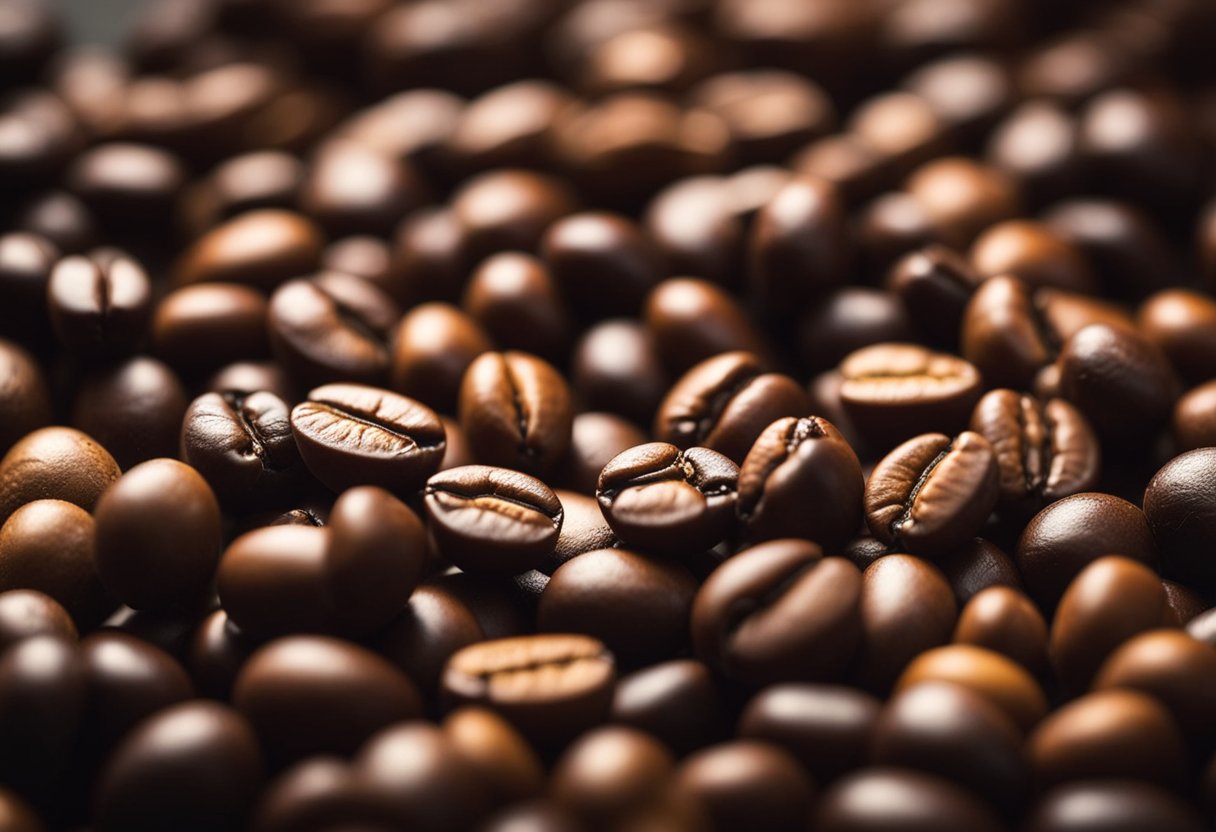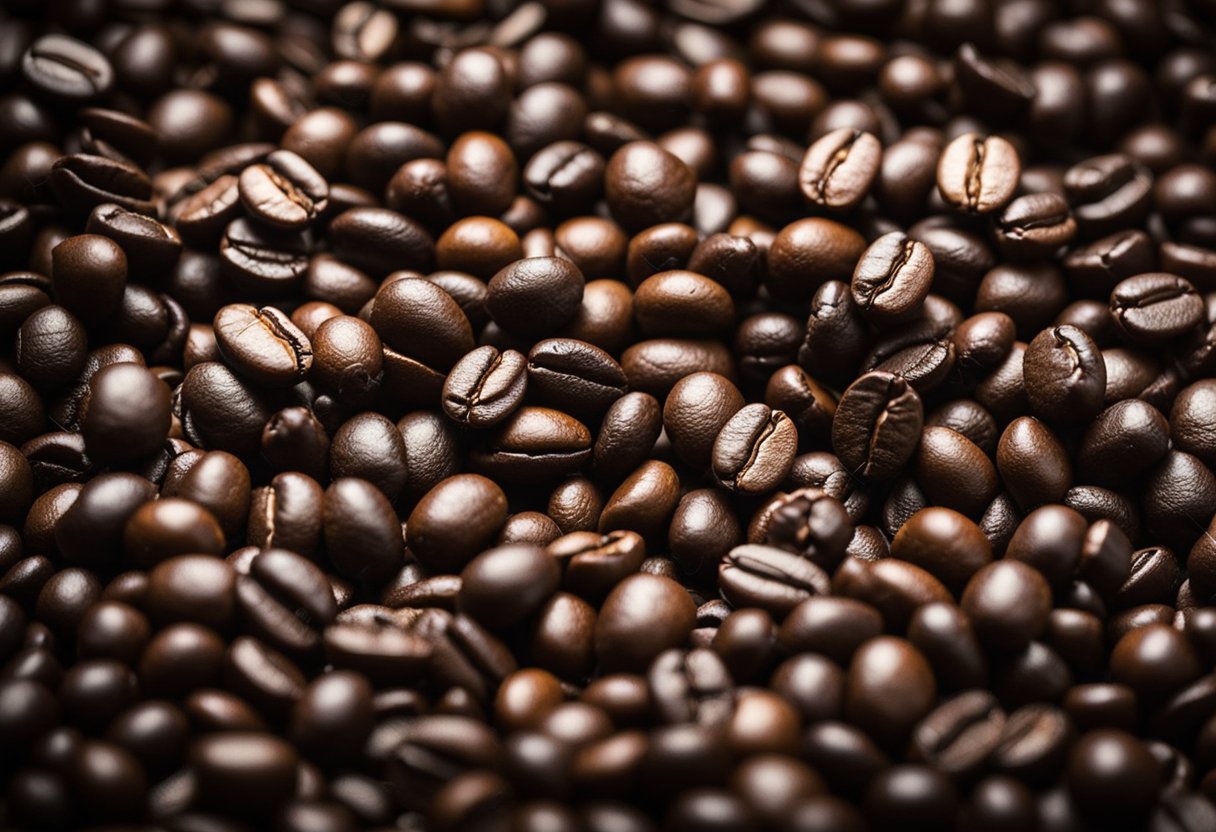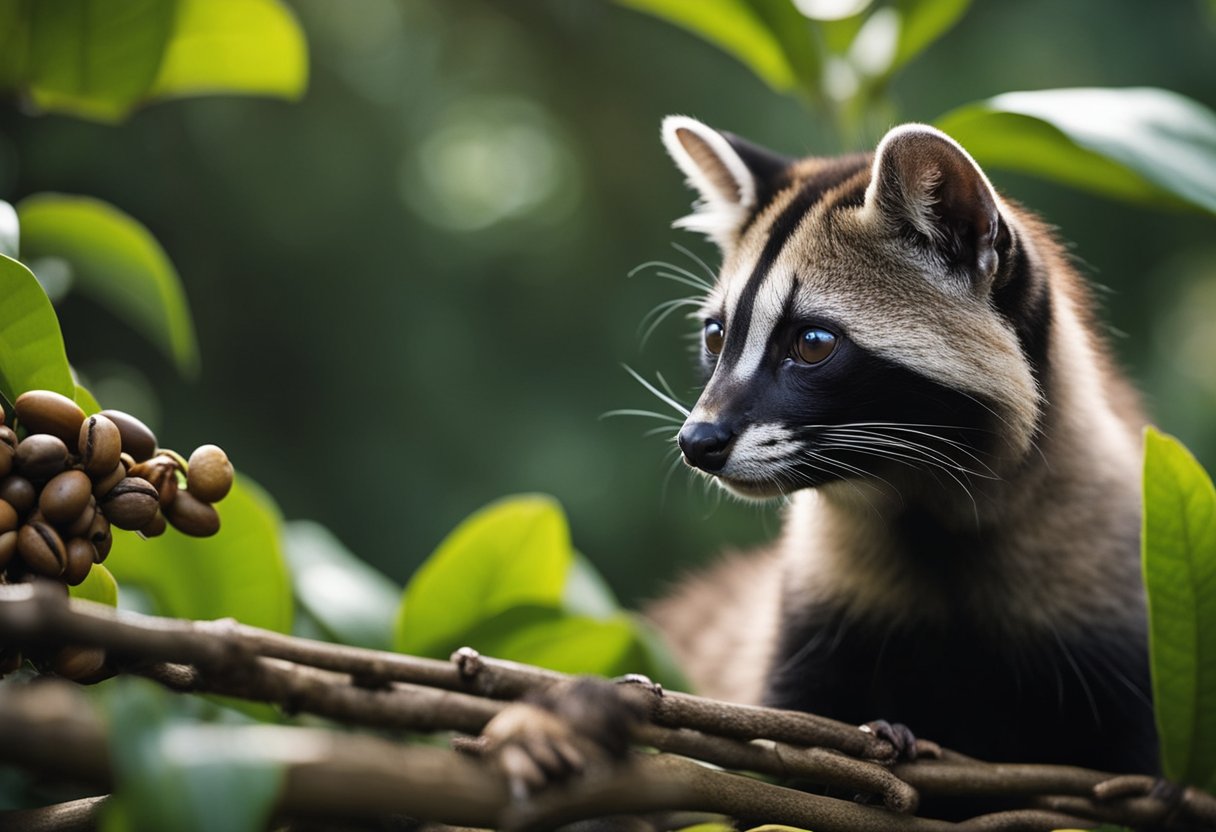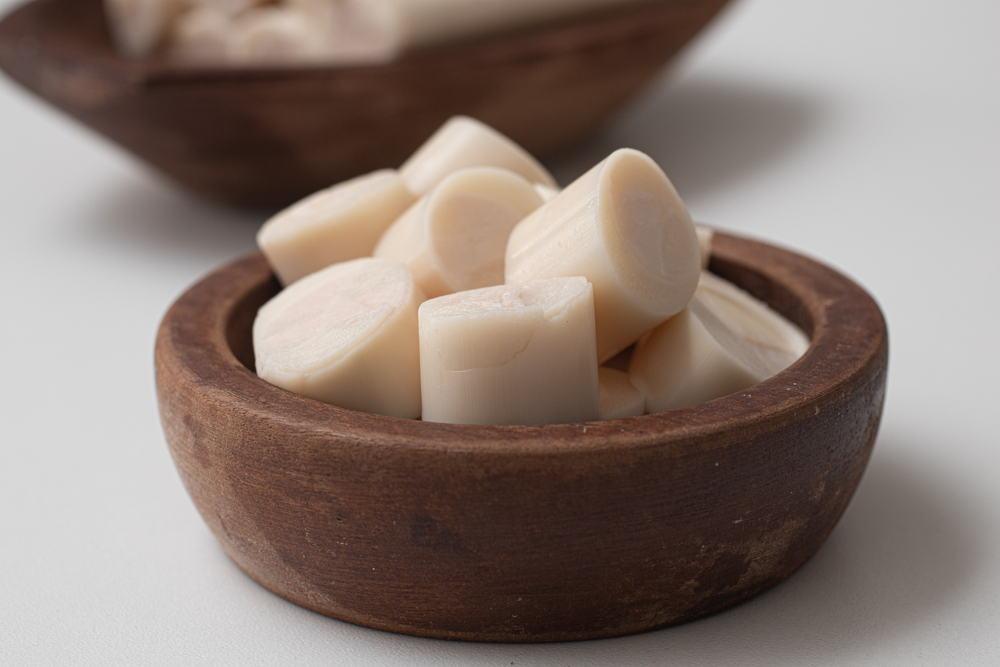As a coffee enthusiast, I have always been fascinated by the unique and exotic taste of kopi luwak, one of the most expensive coffees in the world.
The price of this coffee is often a topic of interest and discussion among coffee lovers, and for good reason.
Kopi luwak is known for its distinctive flavor and the unique production process that involves the Asian palm civet, a small mammal native to Southeast Asia.

The price of kopi luwak can vary greatly depending on several factors such as the origin, type, and quality of the beans.
While farmed kopi luwak can cost around $100 per kilogram, wild-collected beans can reach up to $1300 per kilogram.
The price of a single cup of kopi luwak coffee can range from $4 for the farmed variety to up to $100 for the wild variety. Understanding the factors that affect the price of kopi luwak can help coffee lovers appreciate and enjoy this unique and sought-after brew even more.
Key Takeaways
- Kopi luwak is one of the most expensive coffees in the world due to its unique production process and distinctive flavor.
- The price of kopi luwak can vary greatly depending on several factors such as the origin, type, and quality of the beans.
- Understanding the factors that affect the price of kopi luwak can help coffee lovers appreciate and enjoy this unique and sought-after brew even more.
History of Kopi Luwak
Kopi Luwak, also known as civet coffee, is one of the most expensive coffees in the world. It is made from coffee beans that have been eaten and excreted by the Asian palm civet, a small mammal native to Southeast Asia.
The history of Kopi Luwak can be traced back to the 18th century when Indonesia was under Dutch colonial rule. At that time, the Dutch brought coffee plants to the country and began cultivating them on plantations.
The native farmers were not allowed to pick the coffee fruits for their own consumption, so they started collecting the beans from the feces of civets that roamed the plantations.
The Dutch colonialists soon realized that the civet coffee had a unique flavor and aroma, and they began to collect and process it for export to Europe. The demand for Kopi Luwak grew, and it became a luxury item that was enjoyed by the wealthy.
Today, Kopi Luwak is still produced in Indonesia, and it remains a highly prized coffee that is enjoyed by coffee connoisseurs around the world.
However, there have been concerns about the treatment of the civets that are used to produce the coffee, and there have been efforts to promote more ethical and sustainable production methods.
Overall, the history of Kopi Luwak is a fascinating story that reflects the complex interplay between colonialism, agriculture, and luxury consumption.
Understanding Kopi Luwak
Kopi Luwak is a rare and expensive coffee that is made from coffee beans that have been eaten and excreted by the Asian Palm Civet.
The coffee is produced mainly in Indonesia, the Philippines, and Vietnam. The coffee cherries are eaten by the civet and the beans are then excreted. The beans are collected, washed, and roasted to produce the coffee.
The digestive system of the civet plays a crucial role in the production of this coffee. The digestive enzymes in the civet’s stomach break down some of the proteins in the coffee beans, which results in a smoother cup of coffee.
The fermentation that takes place in the civet’s stomach also helps to enhance the flavor of the coffee.
Kopi Luwak is considered one of the most expensive coffees in the world. The price of the coffee varies depending on whether it is farmed or wild.
Farmed beans cost at least $50 per pound, while wild beans can cost at least $300 per pound. The price of a cup of kopi luwak coffee also varies depending on where you drink it. A cup of coffee can cost anywhere from $5 to $100.
Kopi Luwak is often compared to high-quality arabica coffee. While the price of kopi luwak is much higher than arabica coffee, it is important to note that the production of kopi luwak is much more labor-intensive and time-consuming.
The high price of kopi luwak is also due to the low supply and high demand for the coffee.
In conclusion, kopi luwak is a unique and expensive coffee that is produced using a rare and unusual process. The digestive system of the civet plays a crucial role in the production of the coffee, resulting in a smoother and more flavorful cup of coffee.
Despite its high price, kopi luwak remains a popular and sought-after coffee among coffee enthusiasts around the world.
Production Process
I have learned that the production process of kopi luwak is quite unique and time-consuming. It involves the palm civet, a small nocturnal animal that feeds on coffee cherries.
The civet’s digestive system breaks down the outer layer of the coffee cherry, leaving the beans intact. These beans are then collected from the civet’s feces and cleaned thoroughly.
After cleaning, the beans are roasted to bring out their unique flavors. Roasting is a crucial step in the production process as it helps to develop the coffee’s aroma and taste.
The roasting process for kopi luwak is similar to that of other coffee beans, but the beans are roasted for a shorter time to preserve their unique flavor.
Kopi luwak can be produced in two ways: wild-sourced and caged. Wild-sourced kopi luwak is collected from wild civets that roam freely in the forests.
On the other hand, caged kopi luwak is produced in coffee plantations where civets are kept in cages and fed coffee cherries. The latter has been a subject of controversy due to animal welfare concerns.
The production of kopi luwak is laborious, and the beans are scarce, which makes it one of the most expensive coffees in the world.
The price of kopi luwak can vary depending on the quality of the beans, the region, and the production method. Wild-collected beans are generally more expensive than farmed beans, and prices can range from $100 to $1,300 per kilogram.
Taste and Quality
As a coffee enthusiast, I have tasted various types of coffee from around the world, but Kopi Luwak coffee stands out for its unique taste and high quality.
The taste profile of kopi luwak coffee is distinct, with an earthy and musky aroma, hints of chocolate and caramel, and a smooth, rich taste that is unparalleled in the coffee world.
The quality of kopi luwak coffee is due to the exclusive use of Arabica beans, which are hand-picked and carefully processed to ensure the highest quality of coffee.
The beans are then passed through the digestive system of the Asian palm civet, a small mammal found in Southeast Asia, which gives them their unique flavor and aroma.
The process of producing kopi luwak coffee has raised ethical concerns, particularly regarding the treatment of civet cats, which are often caged or force-fed to produce the beans.
However, ethical and sustainable methods of producing kopi luwak coffee are gaining popularity, ensuring that the coffee is produced without harming the animals.
In terms of acidity, kopi luwak coffee is known for its low acidity, which makes it easy on the stomach and ideal for those who are sensitive to acidic coffee.
The coffee has a full-bodied flavor, which is balanced by its low acidity, making it a delicious and smooth coffee to drink.
Overall, kopi luwak coffee is a high-quality and unique coffee that is worth trying for any coffee enthusiast. It’s smooth, delicious taste and low acidity make it a great coffee to drink any time of day, and its unique flavor profile is sure to impress even the most discerning coffee connoisseur.
Types of Kopi Luwak

As I research kopi luwak, I have come across two types: farmed kopi luwak and wild kopi luwak.
Farmed Kopi Luwak
Farmed kopi luwak is produced by caged civets that are force-fed coffee cherries. The process of producing farmed kopi luwak is controversial because it involves animal cruelty.
The caged civets are often fed low-quality coffee cherries, which results in the production of low-quality kopi luwak. Farmed kopi luwak is less expensive compared to wild kopi luwak, with prices starting from $100 per kilogram in Indonesian supermarkets.
Wild Kopi Luwak
Wild kopi luwak, on the other hand, is produced by free-roaming civets that consume only the ripest and highest quality coffee cherries.
The process of producing wild kopi luwak is natural, and the coffee beans are of higher quality compared to farmed kopi luwak. Wild kopi luwak is rare and expensive, with prices reaching up to $1300 per kilogram for wild-collected beans.
It’s important to note that not all kopi luwak on the market is authentic or genuine. Up to 70% of kopi luwak sold is inauthentic, according to Lafayette College. Most versions on the market are blends, with some containing as little as 1% kopi luwak.
Therefore, it’s essential to purchase kopi luwak from reputable and trustworthy sources to ensure that you’re getting 100% pure kopi luwak.
In summary, there are two types of kopi luwak: farmed and wild. Farmed kopi luwak is produced by caged civets and is less expensive but of lower quality.
Wild kopi luwak is produced by free-roaming civets, is of higher quality, and is more expensive. It’s crucial to purchase kopi luwak from reputable sources to ensure that you’re getting 100% pure kopi luwak.
Price Factors

As one of the most expensive coffees in the world, kopi luwak has a high price that is influenced by several factors. In this section, I will discuss the main factors that affect the retail prices of kopi luwak.
Supply and Demand
One of the primary factors that determine the price of kopi luwak is the supply and demand for the coffee. The production of kopi luwak is limited, as it is made from coffee beans that have been digested and excreted by civet cats.
This makes kopi luwak a rare and exclusive coffee, which drives up the demand and price. The high price of kopi luwak also makes it a status symbol for coffee enthusiasts who are willing to pay a premium for the unique taste.
Rarity
The rarity of kopi luwak is another factor that contributes to its high price. Civet cats are not easy to find, and they only eat a small amount of coffee cherries, which makes the production of kopi luwak limited.
Additionally, wild-collected kopi luwak is even rarer, which makes it more expensive than farmed kopi luwak.
Production Costs
The production costs of kopi luwak are also a significant factor in its high price. The process of collecting and cleaning the coffee beans from the feces of civet cats is labor-intensive and time-consuming.
Additionally, the beans must be carefully washed and roasted to ensure their quality. These factors increase the production costs of kopi luwak, which are reflected in its retail price.
Authenticity
The authenticity of kopi luwak is another factor that affects its price. Authentic kopi luwak is produced from coffee beans that have been digested and excreted by civet cats.
However, there are many fake or adulterated versions of kopi luwak on the market, which are sold at lower prices.
These fake versions of kopi luwak can be made from lower-quality coffee beans or even instant coffee, which reduces their price.
In summary, the high price of kopi luwak is influenced by several factors, including supply and demand, rarity, production costs, and authenticity. These factors contribute to the exclusivity and uniqueness of kopi luwak, which makes it one of the most expensive coffees in the world.
Controversies and Concerns

As I delve deeper into the world of kopi luwak, I cannot ignore the controversies and concerns surrounding this luxury coffee.
The process of making kopi luwak involves collecting coffee beans from the feces of civet cats. While this may seem like a unique and exotic process, it has raised several animal welfare concerns.
Animal welfare activists have criticized the practice of keeping civet cats in captivity and forcing them to eat coffee beans.
Many civet cats are taken from the wild and kept in small cages, which can lead to stress, malnutrition, and disease. The conditions in which these animals are kept can be extremely cruel and inhumane.
The controversy surrounding kopi luwak has led to calls for a boycott of this luxury coffee. Organizations such as Tony Wild and Cut the Crap have been vocal in their opposition to the use of civet cats in the production of kopi luwak.
they argue that the high price of the coffee is not worth the animal suffering that it causes.
As a member of the public, I believe it is important to be aware of the controversies and concerns surrounding kopi luwak.
While I may be intrigued by the unique process used to produce this luxury coffee, I cannot ignore the ethical implications of its production.
As consumers, we have the power to make a difference by choosing to support ethical and sustainable coffee production practices.
Overall, the concerns surrounding kopi luwak highlight the importance of ethical and sustainable coffee production practices. As a responsible consumer, I believe it is my duty to support coffee production that is both ethical and sustainable.
Kopi Luwak Across the World
Kopi Luwak, also known as civet coffee, is a rare and expensive coffee that is made from the feces of the Asian palm civet. The coffee is produced in several countries across the world, including Sumatra, Bali, Java, the Philippines, Vietnam, and Sulawesi.
In Indonesia, kopi luwak is considered a delicacy and is highly sought after by coffee connoisseurs. The country is the largest producer of kopi luwak, and the coffee is widely available in specialty coffee shops and high-end restaurants.
Sumatra, the largest island in Indonesia, is known for producing some of the finest kopi luwak in the world. The coffee is grown in the highlands of the island, where the cooler temperatures and abundant rainfall provide ideal growing conditions for the coffee trees.
In Bali, kopi luwak is produced in small quantities and is considered a luxury item. The coffee is grown on small family farms and is sold at premium prices to high-end restaurants and hotels.
Java, another island in Indonesia, is known for producing high-quality kopi luwak that is prized for its rich and complex flavor profile. The coffee is grown on small family farms and is processed by hand to ensure the highest quality.
The Philippines is another country that produces kopi luwak, although in much smaller quantities than Indonesia. The coffee is grown on small family farms and is sold at premium prices to specialty coffee shops and high-end restaurants.
Vietnam is also a producer of kopi luwak, although the coffee is not as widely available as it is in Indonesia. The coffee is grown on small family farms and is sold at premium prices to specialty coffee shops and high-end restaurants.
Sulawesi, an island in Indonesia, is known for producing kopi luwak that is prized for its rich and complex flavor profile. The coffee is grown on small family farms and is processed by hand to ensure the highest quality.
Overall, kopi luwak is a rare and expensive coffee that is highly prized by coffee connoisseurs around the world. While the coffee is produced in several countries, Indonesia is the largest producer and is known for producing some of the finest kopi luwak in the world.
For the Enthusiast
As a coffee enthusiast, I am always on the lookout for new and exciting blends to try. Kopi Luwak, also known as civet coffee, is a luxury coffee that has piqued my interest due to its unique production process and high price point.
Specialty coffee shops and gourmet coffee retailers often carry Kopi Luwak, but it can also be purchased online. It is important to note that the price of Kopi Luwak varies greatly depending on the quality and origin of the beans.
Wild kopi luwak can cost anywhere from $35 to $100 per cup, while farmed kopi luwak can be purchased for as little as $45 per pound.
While Kopi Luwak may be a rare and expensive treat for some, it is important to be aware of the potential health risks associated with consuming this type of coffee.
Due to the unique production process, mold can sometimes grow on the beans and cause illness in those who drink it. It is recommended to only purchase Kopi Luwak from reputable sources that have been properly tested for mold and other contaminants.
For those with a larger bank account, Kopi Luwak can be a unique addition to a coffee collection or a special treat for guests. It can also be a popular souvenir for tourists visiting Indonesia, where the coffee is traditionally produced.
Overall, while Kopi Luwak may not be for everyone, it is certainly a luxury coffee worth trying for those with an adventurous palate and a willingness to pay a premium price.
Related posts:
Frequently Asked Questions
What is the process of making kopi luwak coffee?
Kopi luwak coffee is made from the feces of the Asian palm civet. The civet eats coffee cherries, and the beans pass through its digestive system.
After the beans are excreted, they are collected, cleaned, and roasted. The roasting process is the same as for any other coffee beans.
Where can I buy authentic kopi luwak coffee beans?
Authentic kopi luwak coffee beans can be purchased online or in specialty coffee shops. It is important to do your research and buy from a reputable source to ensure that you are getting genuine kopi luwak coffee.
Why is kopi luwak coffee so expensive?
Kopi luwak coffee is expensive because of the limited supply and the labor-intensive process of collecting the beans.
The civet cats that produce the coffee are found only in certain regions of Southeast Asia, and they produce only a small amount of beans each year. Additionally, the beans must be collected by hand from the feces of the civet cats.
How much does a pound of kopi luwak coffee cost?
The price of kopi luwak coffee varies depending on the source and the quality of the beans. Farmed kopi luwak coffee can cost up to $100 per kilogram ($45 per pound), while wild-collected beans can cost up to $1300 per kilogram ($600 per pound).
Is kopi luwak coffee safe to drink?
Kopi luwak coffee is safe to drink, but it is important to buy from a reputable source to ensure that the beans have been properly cleaned and roasted.
Some people have raised concerns about the hygiene of collecting beans from animal feces, but the beans are thoroughly cleaned before roasting.
Do farmers wash the kopi luwak coffee beans before roasting them?
No, farmers do not wash the kopi luwak coffee beans before roasting them. The beans are cleaned by hand, but they are not washed with water. This is because washing the beans can remove some of the flavors that make kopi luwak coffee unique.







